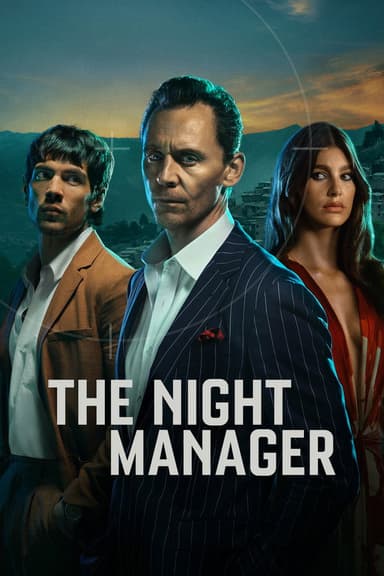
Max Anger
2021 • Drama
Max Anger is a former member of the Swedish military who finally found love with his Russian colleague Pashie. When Pashie suddenly goes missing in St Petersburg, Max sets off on a mission to find her but soon finds himself on a deadly hunt leading him to a terrifying discovery that could potentially change the entire world order.
Why you should read the novel
Reading Martin Österdahl's novel 'Ask No Mercy' offers a deeply immersive experience, guiding you through the intricate mind of Max Anger in a way television rarely can. The prose provides detailed insights into the lead character’s emotions, motivations, and the shadows of his past, resulting in a richer, more textured understanding of his journey. The book’s subtle layering of history, espionage, and personal drama ensures readers are engaged on both intellectual and emotional levels—something that rewards every turn of the page.
Moreover, the novel unfolds at a pace that allows you to savor the Scandinavian setting, appreciate the nuances of culture and politics, and become absorbed by the slow-burn tension only a carefully constructed literary world can offer. Österdahl’s writing captures the moral ambiguities and complexities of spycraft, delving into the psychological burdens faced by the protagonist and his pursuit of truth and justice.
Choosing the novel over the TV series means you’ll experience the original vision conceived by the author—a vision painted with words that encourage your imagination to fill in every shadowy alley and unsaid thought. For lovers of Nordic noir, espionage thrillers, and deeply personal mysteries, reading the novel is a rewarding journey that far surpasses the confines of the screen.
Adaptation differences
The TV adaptation of 'Max Anger' deviates from the original novel in several ways, primarily to suit the demands and constraints of the visual medium. Firstly, the series condenses and streamlines plotlines to fit within a limited number of episodes, often omitting or altering subplots that in the book provide crucial background and motivation for key characters. This results in a faster-paced narrative on screen but at the cost of depth and detail explored in Martin Österdahl's writing.
Characters are sometimes amalgamated or changed for dramatic effect in the series, which can shift the focus from the nuanced development present in the novel. For example, some side characters in the book who have their own arcs and rich backstories are less developed or even absent in the adaptation, which can flatten the story’s complexities and the moral dilemmas faced by the protagonist.
The atmosphere and tone are also noticeably different. While the novel delves deeply into Max’s inner thoughts, struggles, and the historical context of his investigations, the show leans more on visual cues and suspenseful sequences, sometimes sacrificing psychological depth for action and spectacle. This can lead to a more thrilling viewing experience but one that is arguably less emotionally resonant and introspective than reading the book.
Finally, the TV series occasionally changes the setting and timeline to heighten drama or better fit production needs. Key historical details uncovered gradually and meticulously in the novel might be revealed quickly or reinterpreted for clarity and immediacy on screen. These choices mean that readers seeking intricate world-building and subtle plot developments will find the book's version of Max Anger's story far more expansive and rewarding.
Max Anger inspired from
Ask No Mercy
by Martin Österdahl



